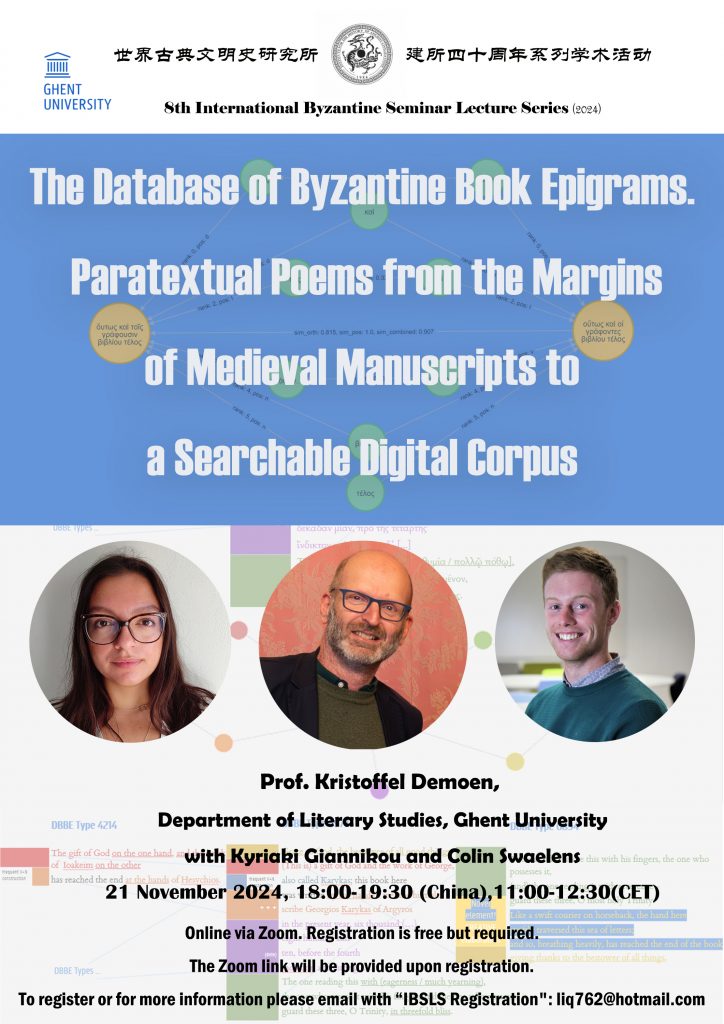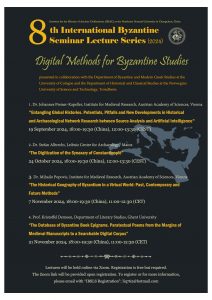The Greek section of Ghent University, in collaboration with the Research School OIKOS and the Royal Library of Belgium, offers a two-day crash course in Greek palaeography. The course will take place on 27-28 May 2025 in Ghent and Brussels. It is intended for MA, ResMA and doctoral students in Classics, Ancient History, Ancient Civilizations, Byzantine studies, Medieval studies and related fields. Students must have a good command of Greek. The course offers an introduction into Greek palaeography from the Hellenistic period to the end of the Middle Ages and is specifically aimed at acquiring practical skills for research involving literary and documentary papyri and/or manuscripts. Participants will gain hands-on experience with original papyri housed at Ghent University Library and with manuscripts from the Royal Library of Belgium in Brussels.
Programme
The course will take place over two full days, with one session in Ghent on Tuesday, 27 May, and the other in Brussels on Wednesday, 28 May. Specialists in Greek palaeography will deliver lectures providing a chronological overview of the evolution of Greek handwriting, accompanied by introductions into the material features of both papyri and codices. The lectures will be followed by practical sessions, consisting of supervised reading of selected extracts from papyri and manuscripts in small groups. There will be guided exhibitions of selected papyri (in Ghent) and medieval manuscripts (in Brussels).
Tuesday, 27 May 2025
09:30-10:00 Introduction to the Crash Course
10:00-10:30 Introduction to papyrology and the materiality of papyri – Dr. Serena Causo
10:30-11:45 Papyri of the Ptolemaic and Roman period – Dr. Joanne Stolk
11:45-13:00 Practice with papyri of the Ptolemaic and Roman period
13:00-14:00 Lunch break
14:00-14:30 Presentation of papyri from the collection of the Ghent University Library – Dr. Serena Causo
14:30-15:45 Papyri of the Byzantine period – Dr. Yasmine Amory
15:45-17:00 Practice with papyri of the Byzantine period
18:30 Dinner in Ghent (optional)
Wednesday, 28 May 2025
09:30-10:00 Introduction to the codicology of the Byzantine book – Dr. Grigory Vorobyev
10:00-10:30 Display moment 1
10:30-10:45 Coffee break
10:45-12:00 Byzantine book scripts 1: From the first codices to the eleventh century – Prof. dr. Floris Bernard
12:00-13:00 Reading practice 1
13:00-14:00 Lunch break
14:00-15:15 Byzantine book scripts 2: The Comnenian and Palaeologan periods – Prof. dr. Andrea Cuomo
15:15-15:45 Display moment 2
15:45-16:45 Reading practice 2
The teaching staff also includes Kyriaki Giannikou, Dr. Juan Bautista Juan-López, Eleonora Lauro, Dr. Divna Manolova and Dr. Chiara Monaco.
Practical information
The study load is equivalent to 2 ECTS credits (2×28 hours). In preparation for the course, participants will be required to read secondary literature which will be distributed several weeks in advance. Additional materials will be provided in order to help develop further reading skills after the course.
There is no participation fee for this course. Lunches will be provided on both days free of charge. Travel and accommodation expenses are the responsibility of the participants. The train connection between Ghent Sint-Pieters Station and Brussels Central Station is frequent, with a travel time of less than 40 minutes. Participants may choose to lodge in either city.
The course will take place at the following venues:
Registration
Prospective participants should register by sending an e-mail to grigory.vorobyev@ugent.be with a short motivation letter (approximately 300 words), detailing their academic background, research interests and motivation for attending the course. Priority will be given to MA and doctoral students associated with OIKOS and those who have not previously had the opportunity to study palaeography. The deadline for registration is 1 March 2025. Applicants will be notified of the outcome shortly thereafter.

